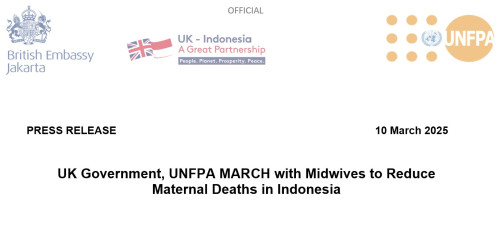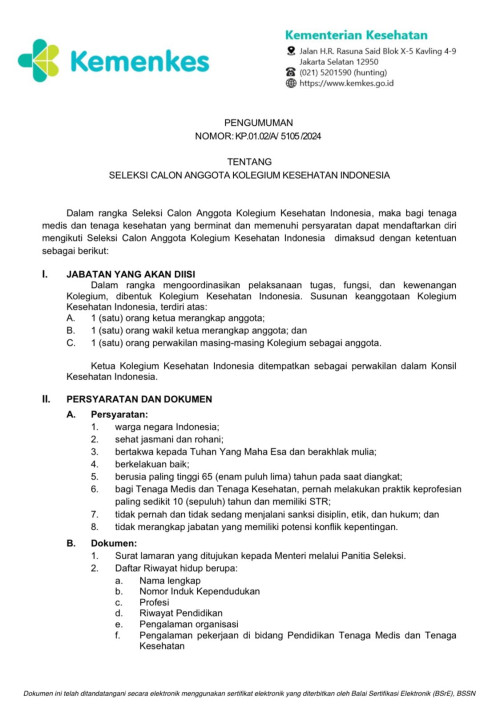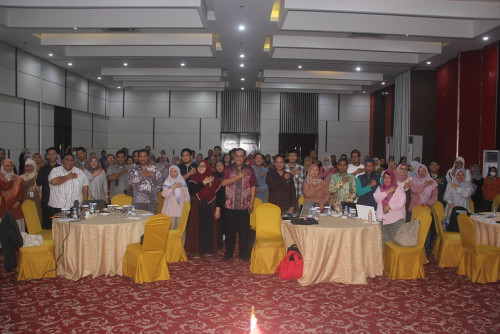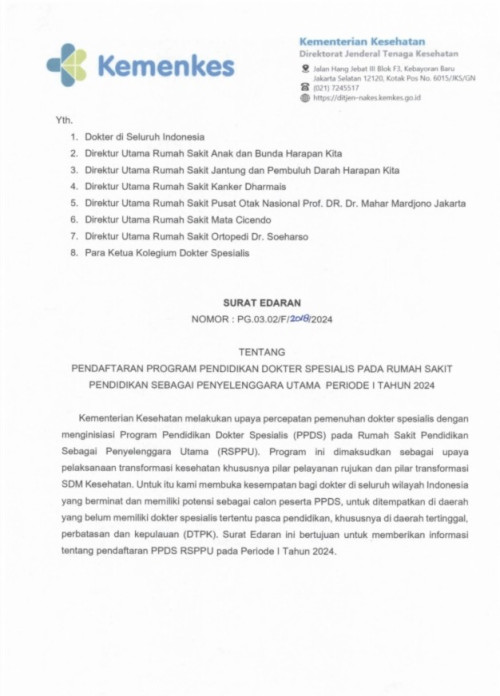Press Release Peresmian MARCH Project


Jakarta, 10 March 2025–A woman in Indonesia dies every hour from complications during pregnancy, birth, and post-delivery. Maternal deaths in Indonesia remain a high priority public health issue, with a Maternal Mortality Ratio (MMR) of 189 maternal mortalities per 100,000 live births (Long Form Population Census, 2020). Access to quality maternal health services is key to ending preventable maternal deaths.
Midwives are the backbone of maternal health systems who provide care with care, supporting childbearing women and their newborns, and ensuring safe birth for families in remote and hard-to-reach communities. More than 351.673 registered midwives across the archipelago (Ministry of Health, 2024) cater for 74% of antenatal care (ANC), 61% of deliveries, and more than 50% of family planning services. Midwives and nurses comprise the country's two largest healthcare workforce. Midwives are also expected to contribute to a broad range of health service provisions, including child health, family planning, and community well-being.
Investing in the competence of midwives is critical to ensuring quality maternal health care, including emergency maternal and neonatal care. The UK Government and UNFPA work with the Ministry of Health and midwifery stakeholders to empower midwives and to reduce maternal and neonatal mortality in Indonesia through the Midwifery Capacity Advancement for Equitable Sexual and Reproductive Health and Reproductive Rights (MARCH) project launched today in Jakarta (10/03).
The MARCH project launch coincides with the Faculty Development Program Training for 44 midwifery lecturers from selected Midwifery Education Institutions, such as Health Polytechnics, Universities, and Private School. The training is part of the MARCH project’s effort to foster a cadre of competent and skilled healthcare professionals capable of delivering high-quality and evidence-based care. The training is meant to equip midwifery lecturers in skills to deliver international standard competency curriculum. This training will be scaled up to all 37 health polytechnics with midwifery study programme under the Ministry of Health,
Additionally, to strengthen the regulatory framework governing the midwifery profession, the MARCH project will support the development of training programmes that will contribute to the midwives’s continuing professional development and wellbeing.
Mitra Kadarsih, member of the Indonesia College of Midwifery (ICoM) said:
“Through the training we reflected and identified a few gaps, for which we sought the shared solutions, such as the ratio between students and lecturers, standardization of student
candidates, and capacity building opportunities for lecturers. We are committed to collaborate to fill the gaps because we need teamwork. And throughout the training we have been made to work in teams. All of the training methods are highly adaptable, so it is feasible for us to adapt it to the Indonesian context. We hope that it will help us become more confident and capable of passing it down and maintaining the quality. We will continue to work together so we can improve the quality of midwifery education in Indonesia so that we can achieve our dream of reducing maternal and infant mortality ratios in Indonesia.”
Yuli Farianti, the General Director for Human Resources for Health, Ministry of Health, said:
“Midwives are key human resources that spearhead maternal health services. There are 545.116 registered midwives in Indonesia, but our maternal mortality ratio is high. Therefore, we need to strengthen the capacity of midwives. We need to ensure the continuity of capacity development year by year. We need to adapt our curriculum with the international standard. I appreciate UNFPA’s support, and I hope that the MARCH project will benefit all of us. I hope beyond this project we will continue to do the work to achieve the goal of reducing maternal and infant mortality.”
H.E. Dominic Jermey, CVO, OBE, the British Ambassador to Indonesia and Timor-Leste, said:
The UK has a long-standing commitment to championing Sexual and Reproductive Health and Reproductive Rights (SRH & RR), ensuring that every individual can exercise their fundamental rights in all settings. We are proud to collaborate with UNFPA and the Government of Indonesia through the MARCH Project, strengthening the capacity of midwives - one of the frontlines of healthcare services. Establishing a robust regulatory framework, alongside continuous professional development and quality education, is critical to building a midwifery workforce that delivers evidence-based care aligned with international standards, ultimately improving health outcomes for women and communities.
Hassan Mohtashami, the UNFPA Indonesia Representative, said:
“Pregnancy is the most joyful moment in the life of a woman, and the family. The death of a mother because of pregnancy is a tragedy. One is too many. Women should not die giving life. That’s the basis of addressing maternal mortality. There are three interventions to reduce maternal mortality: family planning, skilled birth attendants, and emergency obstetric care. We need competent, confident, good midwives to attend delivery. We are here to support, and we are grateful to our partners. The MARCH project is very generously funded by the UK government to address midwifery continuous professional development and regulation. Hopefully, soon we will end preventable maternal deaths.”
The UK Government and UNFPA always stand with the midwives. Our support and commitment is unwavering because theirs is too. Let’s continue our strong partnership to promote a strong midwifery workforce in Indonesia –one that provides the respectful, quality care women want and need to make childbirth the safe and joyous occasion it is meant to be.
Seleksi Kolegium Kolegium Kesehatan Indonesia

Penyusunan Bezetting dan Formasi ASN Tahun 2024 di Lingkungan Ditjen Nakes

Pengumuman Pendaftaran Program PPDS RSPPU (Hospital Based) Periode I Tahun 2024
